
Shoemaking Is A Fascinating Trade…
If you have a passion about good shoes, it is quite possible you wondered how does one make them.
For most it is just a thought, but certain people are serious about it which brings us to today’s question. Where can you learn true shoemaking in 2021?
In today’s article I will be discussing the few methods and courses available so you can get started.
Let’s learn how (and where) to make shoes together!
…But Also A Dying Trade
Globalization and the urge to make everything faster and more efficiently means a lot of traditional jobs are slowly vanishing.
Why would someone spend 60 hours to make a shoe by hand, when you can make 100 pairs in the same time by machine?
That and the endless promotion of consumerism by the money hungry is another contributor to his. Unfortunately, one of the most affected crafts is the art of shoemaking.
The introduction of the Goodyear Welted machine and the industrial booming of the past few decades means it is easier than ever to make good quality shoes quickly.
However, there are still many people that greatly appreciate the craft and love going into a pair of shoes. Whether that is Bespoke or simply Handmade.
Those alongside the master shoemakers are the bastions of this dying trade. We are remaining steadfast and our love for classic shoemaking is strong.
But How & Where Do I Learn To Make Shoes?
However there is one very important question: “Where do I go to learn shoemaking?”.
While brainstorming about which topic to write about this week, It dawned on me. I was absolutely clueless when I wanted to learn it myself. So I might as well help people looking for it right?
The problem with wanting to learn how to make shoes is not the desire, but finding the right sources.
A quick Google search will reveal a lot of information targeted towards hobbyists or even more the terrifying WikiHow.
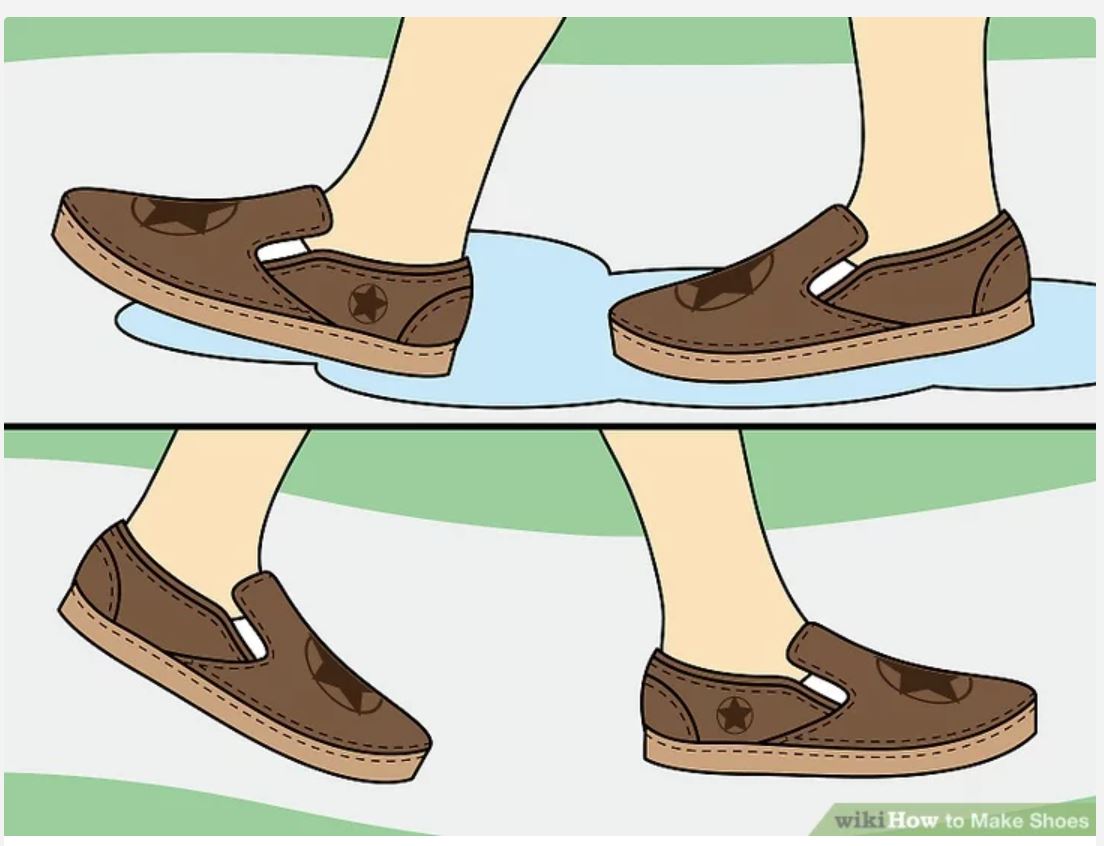
There are however a few ways that you can learn shoemaking the right way and we will talk all about them today.
Heads up, these are obviously not ALL the ways or resources to learn shoemaking. There are tons of them out there but these are they ones I would choose.
1. Shoemaking Courses
The first way to learn true classic shoemaking is enrolling to a shoe school with credentials.
Whether you want to really study or learn more than the basics as a hobby, this is the one for you.
1.1 Stefano Bemer School By Schola Academy
Possibly the best school you can get to right now to learn how to make shoes is the Stefano Bemer class.
The late Stefano Bemer was one of the best shoemakers in the world before sickness took him early from us in 2012.
Stefano used to teach people about shoemaking and this was part of his legacy. After his passing, the Schola Academy in Florence acquired the brand and continued to teach people interested in shoemaking.
There are 3 levels that you can enroll with:
- Apprentice: Introductory 3 month program for beginners (€8000/$9775)
- Artigiano: The Intermediate and more advanced 3 month program following the Apprentice level
- Master: A selected only program after completion of the Artigiano with about 4 months duration
The Stefano Bemer Shoemaking School is serious business and pretty much a full time master’s program.
You will learn everything from the ground up and if you are lucky (and skilled) an individual master will select you for the Master Level. Imagine working one on one with a proper Bespoke Shoemaker.
Inductions only go via application and there is an actual interview process as 8-12 students from all over the world get in every time. You can apply for courses twice a year; once in February and once in August.
The cost is substantial at €13800 ($16850) with a 10% Early Bird Discount if you attend both Apprentice and Artigiano Levels. For those that want to do only the first three months, the price is €8000 ($9775).
One of the “cons’ is that you have to move to Italy but Florence is a wonderful place. I am moving there in February 2022 to start my own journey!
1.2 Janne Melkersson’s Course
If you ever find yourselves in Sweden, I can highly recommend checking out Janne Melkersson.
A fantastically lovely old chap and Bespoke Shoemaker that was even allegedly the inspiration for some of Gaziano & Girling’s lasts.
He is the owner of Melker Shoes and offers a 1 or 2 week shoemaking course one on one.



The cost is 27000 SEK ($3000) for one week and 50000 SEK ($6000) for two weeks.
It might sound costly and short, but you get one on one tutoring, accommodation, food and more. You also make 2 Bespoke Handmade Shoes and keep them, as well as copy all of the patterns that Janne has.
Such a course is sufficient for someone that wants to take shoemaking as a hobby or begin somewhere.
1.3 Marcell Mrsan (Koronya Shoes)
Marcell is a shoemaker from Hungary residing in the States.
His passion for shoemaking exceeds his financial interests and wants to pass on knowledge to people.
Before Covid hit, he scheduled a shoemaking course that unfortunately is no longer active it seems.



Nonetheless, he still offers a lot of value with YouTube Channel and possibly does some workshops.
When the world reopens a bit, it is worth checking out if he teaches again.
1.4 Carreducker
Admittedly, I don’t know as much about Carreducker as I’d like to.
However it was one of the first things that I found years ago when I first got interested in shoes.
Based in the UK, they do everything from providing Bespoke Service to selling shoemaking supplies and providing courses.
https://www.carreducker.com/shop/shoemaking-classes/shoe-making-course/shoe-making-training/
While not sure how it works especially with online shoemaking, they do have a lot of workshops for those that want to hone their skills or ask relevant questions.
If you are a more seasoned veteran you might find yourself buying tools and supplies from them!
1.5 Universities & Individual Courses
There are certain colleges that deal with fashion, rendering and design but these are full programs taking years.
That’s not a problem if you are young but taking this profession later in life becomes much more difficult.
What I also don’t like is the high price and the strong focus on electronic work and theory, rather than practice.
Check out the University of Northampton, the London College of Fashion and any relevant university.
2. Becoming An Apprentice
Probably the best, yet most difficult way to learn how to make shoes is becoming an Apprentice.
By Apprentice, I mean that you would find a master shoemaker and become his pupil, slowly learning the trade.
While this sounds exciting and amazing, finding one is hard. What is even harder is for them to actually accept you.
Back in 2019 I had a chance to apply for apprenticeship at (my now good friend) Bespoke Shoemaker Norman Vilalta.
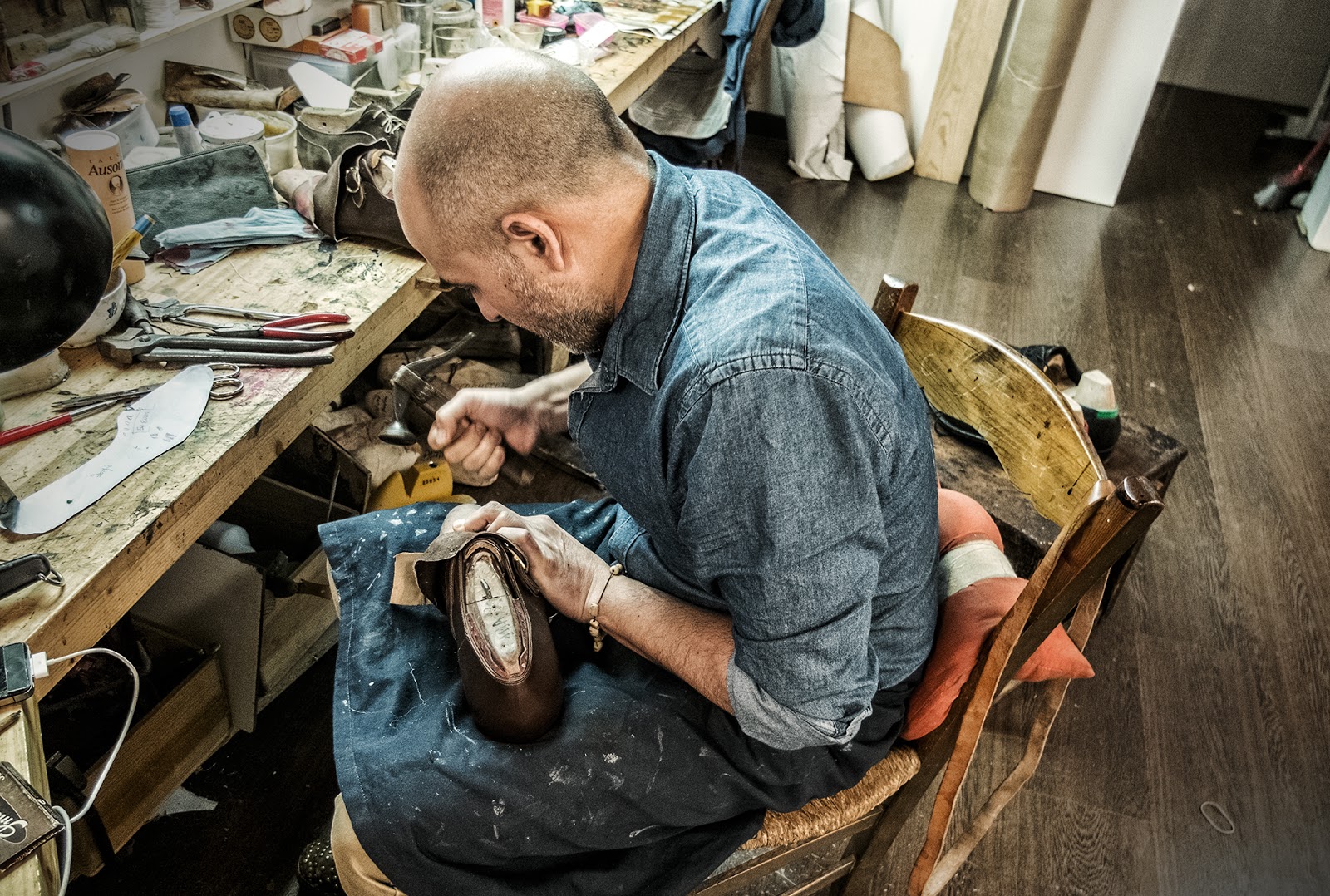


A fantastic gentle guy with a passion for shoes which reminds me of me! He left his corporate job in Argentina in a later age, moved to Florence to study under Stefano Bemer (see the connection?) and then moved to Barcelona to open his own workshop.
In other words, if you have a genuine interest in shoemaking, look in your town for an established Bespoke maker or cordwainer. Approach them, ask questions, get to know them.
It’s a great way to offer help and learn something new.
3. DYI (Do It Yourself)
There is something romantic and satisfying about learning to do something by yourself.
Shoemaking is no different and it is possible however there are certain pitfalls to watch out for.
Let me tell you a quick story.
Back in 2009 I decided I wanted to learn boxing so I went to the best trainer in my city.
That same day another guy that had trained before for 6 months started with me.
We both trained hard and 6 months later I was way ahead of him. He asked the teacher why that happened.
“Because he started from nothing and learn the basics right. I had to reteach you everything and correct the wrong basis you had”
In other words, if you learn by yourself you are at a disadvantage if you get things wrong. There is also nobody there to guide you and teach you.
It will require much more effort and research to self-improve.
Here are some very helpful places to look at.
3.1 Handmade Shoes For Men By Laszlo Vass
Funny how I already covered this book not so long ago in my Vass Budapest Shoe Review.
The owner of that Brand, Laszlo Vass wrote a book that is a phenomenal source of information.
Maybe you will not learn how to make a shoe, but you will understand the reason behind construction and components.
As Simon Sinek say’s sometimes “Why” is more important than How.
3.2 Reddit’s Cordwaining Sub
Reddit is truly a fascinating place, full of wonders, stupidity, memes and a wealth of information.
It’s a great place to discover new ideas, interests and for the most part find helpful communities.
There’s a very specific subreddit called “r/Cordwaining” that has a very helpful wiki with a lot of info you will need.
Make sure to check it out!
3.3 Secret Cobbler
One of the most remarkable stories of DYI when it comes to shoemaking is The Secret Cobbler.
He is a fellow Swede that learned how to make shoes by himself for a hobby.
I highly recommend checking out his blog. It’s astonishing how much he achieved in just 4 years!
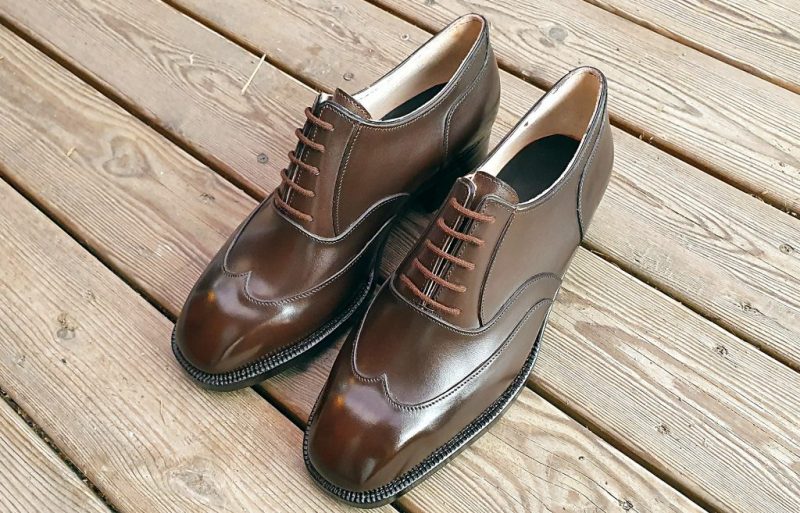


Especially his first posts document the resources he used including books and videos.
I am sure he can serve as inspiration for those of you that want to try learning shoemaking by yourselves.
Is It Worth Learning How To Make Shoes?
As with everything in life, it depends.
If your intention is to become rich selling shoes, you should look for another profession.
Shoemaking is an art that requires passion, blood and sweat but is very rewarding in other aspects.
As a light hobby, or a full time profession it can be superb. It’s also important in my opinion for those in the shoe industry (like me).
I do have a certain knowledge which accumulates over time but I am a perfectionist. I want to improve my business and understand better what I am selling. To know exactly what each component does and spot which corner is worth (or not) cutting.
Chances are, if you are searching for shoemaking courses, you probably belong in the second category!
Conclusion
So what is the conclusion about where to learn how to make shoes?
Well if you do have the budget, a proper shoemaking school is your best choice of formal education.
Alternatively, if there is a shoemaker in your city, visit them, tour the factories and the workshops and form a connection with them. Who knows, maybe one day they will look for an apprentice.
Lastly, you can most certainly learn to make shoes yourself, but it’s tricky to start with and you need to do a lot of research.
I sure hope to hear your thoughts in the comments though and even better, meet you in Florence in 2022!
Let me know if you enjoyed this piece of content and Subscribe for a 10% Discount Off The Noble Shoe!
Thank you for reading,
Kostas Mandilaris,
Misiu Academy




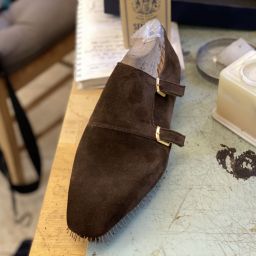



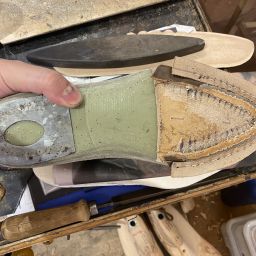
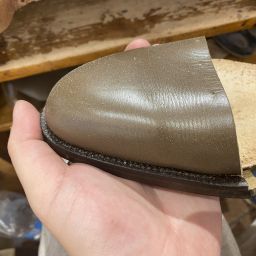
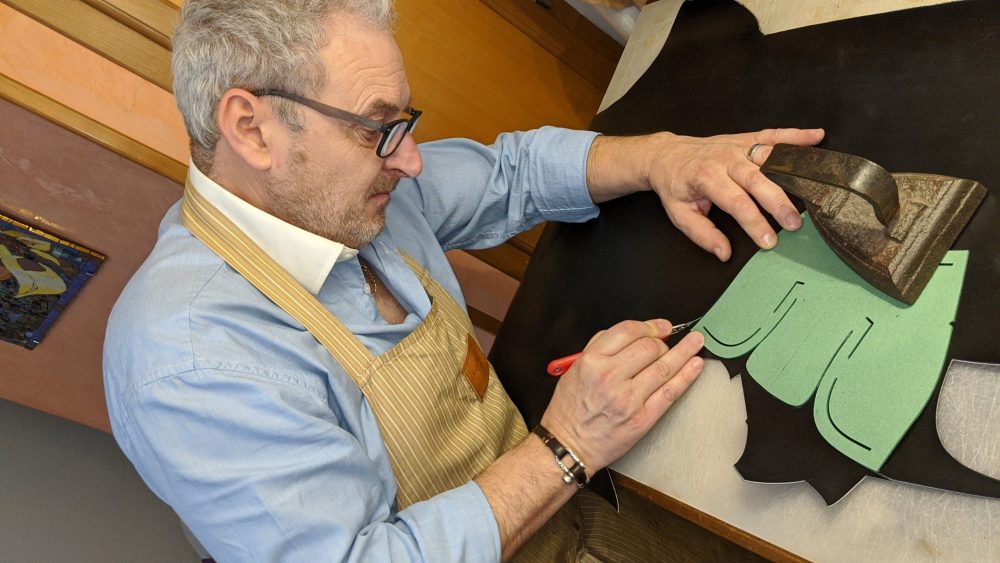

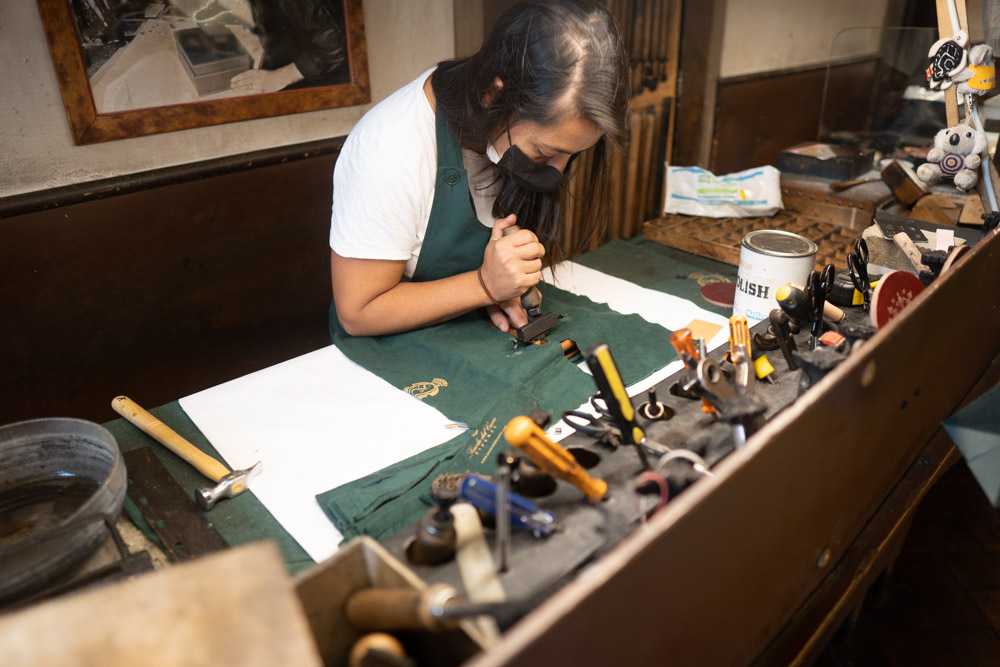

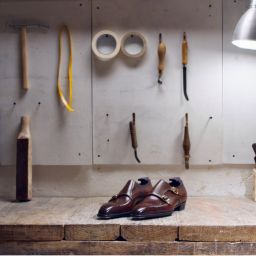
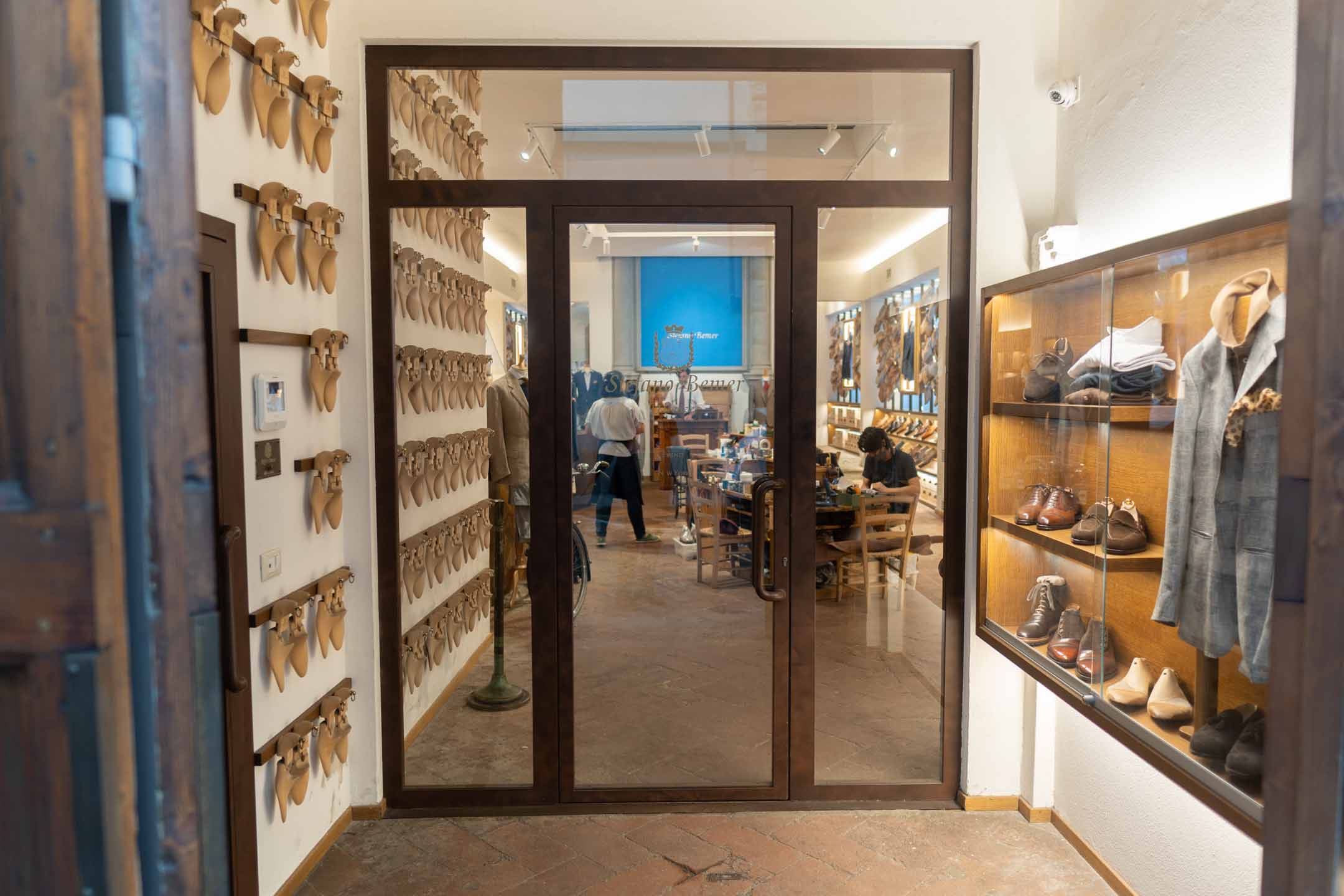

Hola Kostas.
Pasión por los zapatos ??!!
Lo tuyo va mucho mas lejos !!
Grande,grande !!!
Saludos cordiales.
Hehe Buenos dias Ignacio. Gracias!
Es indispensable, para aprender por completo la zapateria, tomar curso donde ya este establecida una tecnica. Desde joven he sido aficionado a la zapateria, pero me facilito y mejoro muchos trabajo desde que hice un curso corto de modelaje de calzado en Youtuve. Y me di cuenta que, me faltaba mucho por aprender.
Learning with a real shoemaker will teach you tricks and techniques that a video or book cannot!
Kostas,
As always, your blog is valuable, full of information I need. About a year ago, I set a goal of learning shoemaking. I’ve been in contact with carreducker, Janne, and the Bemer school. I’m in the unique position of having the time and funding. My goal is to make shoes for myself and maybe a friend or two. However, I’m getting along in years. I’m wondering if you think these schools may think it’s too late for a retired gentleman to get started with shoemaking. Especially the Bemer Masters selection. Opinions?
Hi Peter,
you should absolutely try it. You can even do just the 3 months in the bemer school and it is enough to get going. Send them a mail and ask, just like I did!
My name is John and surname is Makwakwa I like to know to make shoes I know a little bit but I’m not professional, that’s why want professional to learn more
I do teach, yes 🙂
Honor to see you here Marcell! I wish you all the best and glad to know you keep going strong!
/Kostas
I am allergic to synthetic materials and rubber and latex and need an all natural leather shoe with support in the arch. Now I haven’t been able to find a tolerable shoe like ones I grew up in, and since my daughter born in 1969 wore for the first 3 years of her life. Some years ago I wore a shoe ergonomically correct in the wide toe and narrow heel with arch support but the style was discontinued 2 years later. It would be a relief to find shoes like the ones I wore years ago but at 79 years of age I probably would not be going to school to make myself the kind of shoes I could safely wear although I have knitted natural wool socks since high school and counted myself blessed to be able to keep my feet warm as well as my head and hands thanks to wool farming by persons who love farming with wooly animals. I would appreciate any leads if anyone can guide me to a solution not only to my problem but the same problem for others as well. Sincerely yours, Sandy
Hi Sandy,
Thank you for sharing your story with us. Good classic shoes for men these days use 90-95% leather materials. The only parts that are synthetic are not visible or would cause any allergy I would say and are not in any direct contact with the skin. Unless we are talking shoelaces.
If you are looking for this kind of style shoes the only solution is honestly visiting a bespoke shoemaker and creating a pair for you.
classes in minneapolis
Your best bet would be to find a local cobbler or shoemaker honestly.
Am glad to learn and understand the side of the story and i could also like to be associated with you so that i can live to fulfill my dreams since am a leather technologist i can be able to a shoe for my self and my family as well. thanks with kind regards
I do not teach or do shoemaking sir sorry.
[…] wearing a pair of handmade shoes. Whether you opt for casual learning or delve deeply into more advanced techniques and materials, the journey of crafting footwear by hand is replete with continuous learning and […]